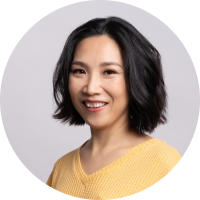Welcome to the #3 issue from my garden gym. This issue was written in between dumbbell fly, sumo squat, and one-arm dumbbell row. No joking, I am the most creative when doing my gym reps or writing calligraphy. Trust that I am not alone.
Not always the case, though. If I think about anything else when cooking, something will burn.
What I do know is that my brain works very differently at such times. I feel completely free. It’s like wandering around in its inner maze without the guidance of my consciousness. Some neurons just hit off randomly. New ideas get spun off every few seconds. Pretty amazing.
I have learned to harness these ideas relentlessly by writing them down the instance they emerge, throughout the waking hours every day. Beyond that, I ask nothing of myself in this phase of the creative process.
Now, let me first get to the idea.
Our mind is capable of divergent thinking and convergent thinking.
Divergent thinking keeps branching out into new things, adding new elements to the map, and can easily lose track of itself. “Oops, sorry, I forgot why I started to talk about this.”
Convergent keeps things in check, sometimes overly so. It can get obsessed with structure, linear logic, focus, and rigidity. “Let’s just get to the point.”
There are a few bizarre scenarios when the two don’t help each other.
Say, if you sit down to draft some important presentation slides, and the mind is flowing everywhere. “Ah I need to call the airline for the meal which I couldn’t add in their system,” “Let me finish that plum in the fridge before it turns bad,” “Perhaps I should check my email first?” People with ADHD tendency can probably empathize with this (when they are yet to be in hyper-focus mode).
Or, when you need to think of new ideas but the mind is analyzing everything. When writing some of the articles, I could see my convergent thinking trying to pull off a solid argument, derive formulas, and drive to a conclusion.
Another common and dreadful scenario is when our mind becomes a wild horse out of control, which is a response to anxiety while amplifying it. This might be divergent and convergent at the same time but stuck in a loop.
This reminds me of the day my telescope arrived. I fixed something in the opposite direction and all I could see was an orange dot, zoomed in or zoomed out. (Later I learned that it was a lamppost 3 blocks away.)
This ONE Idea
When divergent and convergent thinking styles don’t work together:
Divergent = flow without direction
Convergent = direction without flow
When we are capable of both at the same time, we flow with a focus.
Yolanda Yu
I. Creating a focus in a flowy world
After collecting ideas for the week, I sit down at my desk and open my Newsletter template. This is the start of deliberation. I categorize my thoughts, reduce the pile into 3 points, and then identify 1 main theme.
This is convergent. But at the same time, I may also be divergent about whether it can be done differently.
At this phase, I take some help from AI, supposedly the expert in identifying patterns. I must say that it does a mediocre job like a junior assistant. All it does is to sip through paperwork and tell me what weighs more.
Why does AI not work?
AI picks out the most common and consistent theme.
But I am looking for what stands out. When I took a fiction writing class at Stanford, I learned a brutal editing technique.
“Each time you review your earlier draft, trash everything but the most interesting part. Start writing again from there. Repeat.”
A writing advice from Stanford
I want the kind of ideas that strike the earth, fire things up, and kill dinosaurs. I don’t need 10 ordinary stones.
And AI is not very good at making such choices. So I take the 10 ordinary options it cooks up and see whether anything triggers a spark.
My decision process is much simpler. “Do I feel some energy about this?”
This is to say, I rely on intuition.
II. Intuition and why saying no helps
But most of us have been brought up to trust rationality rather than intuition. Some don’t even allow it to speak.
Here’s a surprising discovery in my recent learning journey: I fell in love with cooking, food, and flavors.
This is how then I found out about my suppression of taste preferences all these years. Somewhere deep in unconsciously, I didn’t allow myself to be a “picky eater.” The result? I was never a foodie and never truly enjoyed food.
We live in an era of abundance, not only of food but also of information, opportunities, and choices.
We always want more. This is aimed at maximizing.
We reject “self-destructive” thoughts to let go of things.
This is why decisions on personal life or career are so difficult to make.
“Dislike hard work? How dare you be so lazy?
Dislike authoritarian culture? Aren’t you supposed to be adaptable in all environments?
Do you rather make less? Are you mad? “
Such are the inner dialogues.
But to maximize and to optimize are two different concepts.
Since I let go of my need to be an easy-going eater and rejected half of our daily cuisines, I have started to truly enjoy the food I choose to eat.
(Oh one simple pleasure is grilled capsicums – so juicy and so sweet with a charred flavor!)
I want to keep close to not only what I want. Because that will be too many.
I want to keep close, very close, to what I strongly need, want, believe in, and feel passionate about.
Yolanda Yu
To do that, I need to be able to trust my intuition.
To do that, I need to allow myself to dislike anything in the world.
And I need to accept that sometimes I won’t trust my intuition, swayed by pressure in the situation.
It takes intentionality to learn to listen to intuition. But it’s all worthwhile. So that life can be at its most enjoyable form. Focus. Flow. And then we can live who we truly are.
Well, it wouldn’t matter whether it’s football or whatever; to me, the essence of being as good as you can be is you got to figure out who you are.
And you’ve got to figure that out in in a relentless way, try and get clear about what’s important to you, what uncompromising principles you stand by, what makes you who you are.
If you don’t go through that process, if you don’t do the self-discovery, then you don’t have an opportunity to be your best. Because you don’t know who you are yet.
For anybody, you have to understand what kind of player you are, understand what kind of coach you are, understand what kind of person you are, what kind of dad you are – all the way down the line. To maximize your authenticity and be connected to that true essence of who you are; that’s what’s crucial.
Pete Caroll, America’s best-ever foodball coach.
III. The mysterious relationship of acceptance and flow
Trusting and allowing are the two main keys enabling us to assert our point, make important decisions, and interact with others guided by our inner truth.
But self-acceptance is one of the hardest things to embody. And embodiment takes effort to learn and practice, as well as often, a long time.
We are always the harshest critics of ourselves. Including me.
My recent learning goes:
If, by the end of a day, I tell myself I’m lazy, it’s more likely I will be lazier the next day.
If I forgive all the “unproductive” gaps in my calendar, and say to myself, “It’s okay. You needed some fun/rest.” Or “Yes, you were distracted, but everybody does now and then,” I end up excelling the next day.
No anxiety. No guilt. Just flow.
What supported this shift?
I am no longer defined by what I do or what I achieve.
Question For You
What do you notice about your thinking style – when do your thoughts converge and when diverge?

